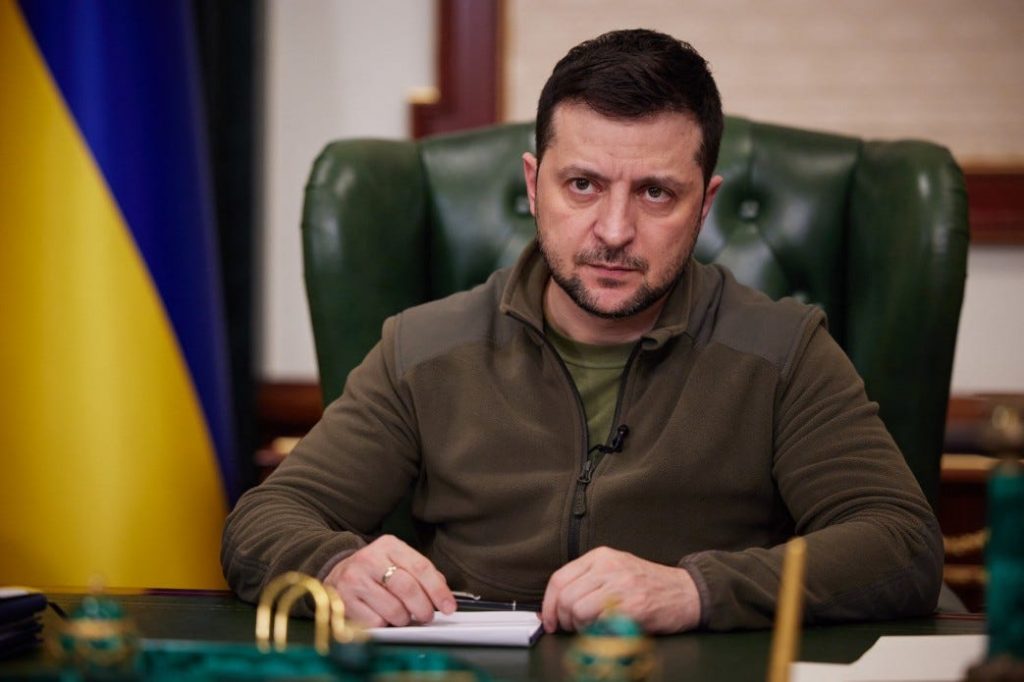Three weeks ago, when President Joe Biden offered Ukrainian President Volodymyr Zelenskyy an escape from his country as Russian forces invaded, Zelenskyy replied, "I need ammunition, not a ride."
The answer is emblematic of Zelenskyy's unflinching allegiance to the people of Ukraine, which has taken center stage as the world lives through what experts have called "the biggest geopolitical event since WWII." Through his words and actions, the 44-year-old head of state has emerged as a relentless defender of democracy.
Last week, nearly 40 European lawmakers wrote a letter to the Nobel committee asking the organization to extend the Nobel Peace Prize nomination deadline so Zelenskyy and the people of Ukraine could be nominated. The gesture illustrated Zelenskyy's influence on the world as a beacon of effective and inspiring leadership. But he didn't need the letter to solidify his place in history. He's done that himself.
From his look — an unshaven face and plain, dark green T-shirts and zip-up sweaters — to his direct and impassioned tone, his prolific use of social media, and his presence on the streets of Kyiv, Zelenskyy is moving the goalpost on what a modern world leader looks and acts like.
Zelenskyy is not a lifetime politician. Though he's licensed to practice law, he grew a career in acting, eventually playing the president of Ukraine before actually getting into politics. His style stands in stark contrast to the decorum and formality that have defined political leadership for centuries. Think of the measured tone of Queen Elizabeth II in her radio broadcasts during World War II or the calculated language used by President Dwight Eisenhower at the beginning of the Vietnam War. Zelenskyy's tone is also extremely different from Russian President Vladimir Putin's style, which has been described as "aloof" and "emotionless."
Insider broke down a few key moments in Zelenskyy's leadership during Russia's invasion to illustrate how he'd inspired a nation and set the standard for leaders of the future.
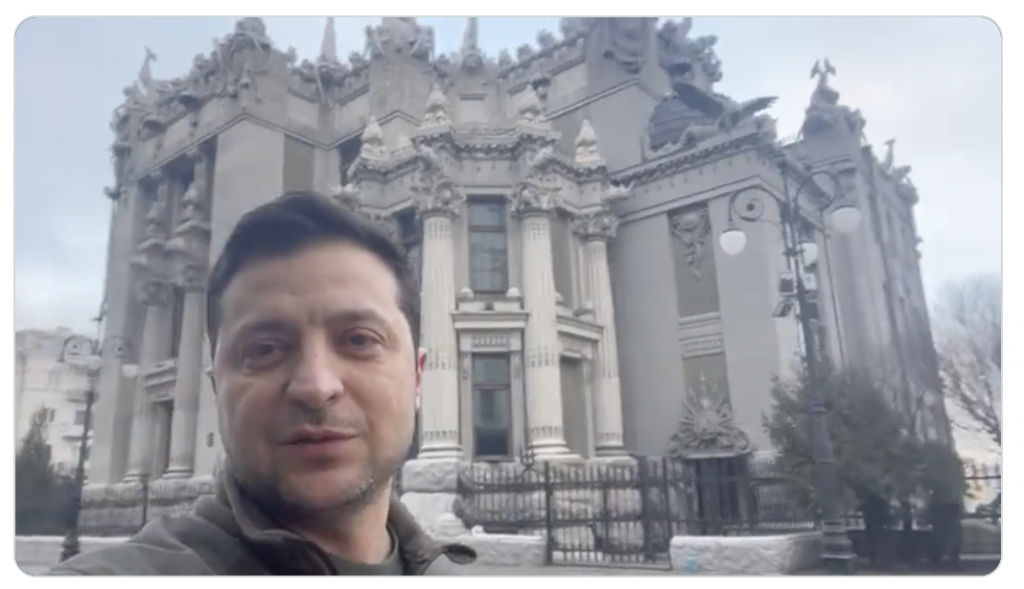
He stood his ground
Zelenskyy could have easily escaped the war zone and led by proxy. President George W. Bush led from a bunker 40 feet underground in Nebraska on September 11, 2001. Afghan President Ashraf Ghani fled Kabul, his country's capital, by helicopter last year when the Taliban began to take over the city.
But Zelenskyy didn't move. Standing his ground shows incredible courage, Alyssa Farah Griffin, a fellow at Georgetown University's Institute of Politics and Public Service, said.
"President Zelenskyy has shown unwavering strength to the world at a time when his life is under dire threat and his country under attack," said Griffin, who was a former White House strategic communications director for President Trump. "The history books will remember his response to President Biden: 'I don't need a ride. I need ammunition.'"
"I am here. We are not putting down arms," he said in a Twitter video played over 19 million times. "That is it. That's all I wanted to tell you. Glory to Ukraine."
Beyond sending a clear message to Putin, Zelenskyy's decision to remain in Ukraine had a ripple effect. Ukrainian men ages 18 to 60 have been ordered to stay behind as tens of thousands of civilians flee the country. Many women are refusing to leave, taking up arms instead. And international volunteers, including American veterans, are traveling to Ukraine to help in the fight.
"It was contagious," Eric Yaverbaum, a CEO consultant specializing in communications and press strategies, said. "Zelenskyy is the ray of hope in the storm and has continued fighting for his people when they needed him the most, instead of abandoning them."
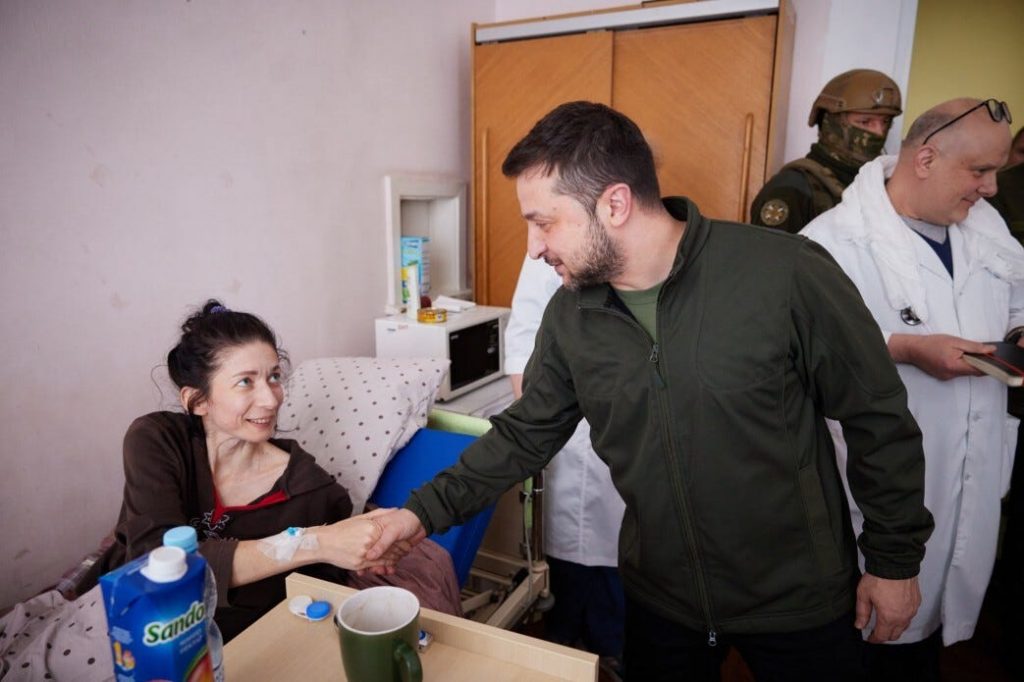
He departed from decorum
An unshaven Zelenskyy has taken to wearing dark, green T-shirts and sweatshirts. Communications experts say his sense of style communicates that he's not bothering with pressing a suit or putting on a tie but working on how to save his country. His casual look makes him approachable and easy to relate to, said crisis communications veteran LaToya Evans.
William B. Eimicke of Columbia University's School of International and Public Affairs agreed.
"His dress, which is kind of an army-distressed look, transmits someone who's on the ground with his people, with his troops," Eimicke said.
Research into US Army leaders found that approachable leaders were more effective in carrying out successful missions. Separate research on doctors leading critical care found physicians were more effective in boosting morale among their direct reports when they were perceived as approachable.
Beyond his austere fashion, he's made a point to speak in plain and direct language. And that command of language is powerful.
"You know, over the last couple of days, I don't know how to welcome and greet everybody because I cannot say 'good morning' or can say 'good afternoon' or 'good evening.' And I cannot. And that's true because every day for some people, this day is not good for some people. This day is the last one," Zelenskyy said in a recent speech in which he asked the European Parliament for acceptance into the EU.
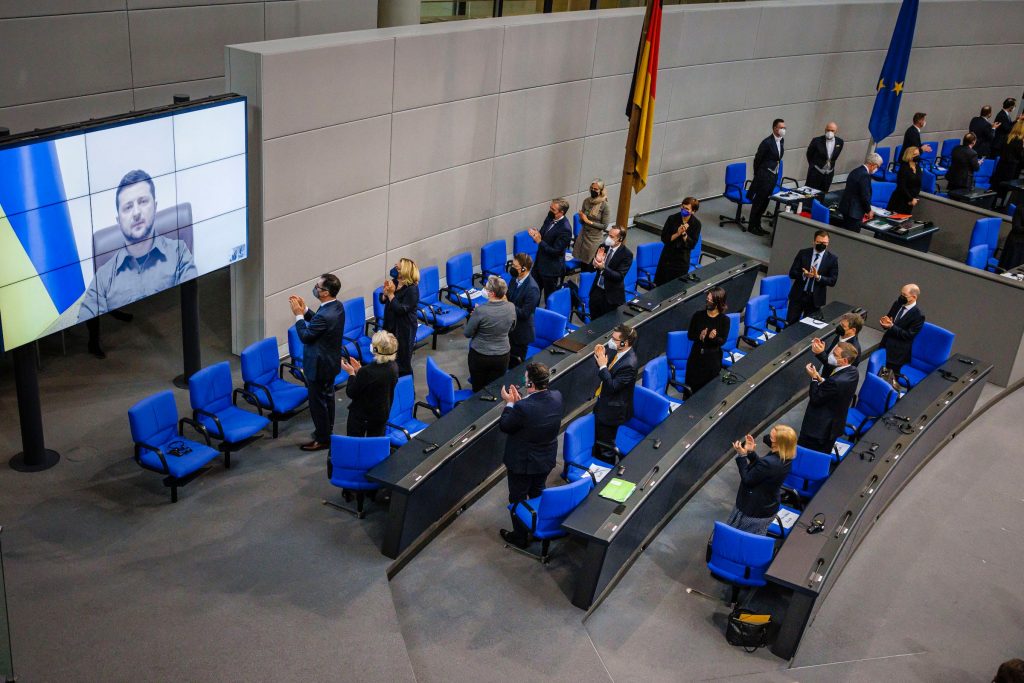
He's using social media — a lot
Zelenskyy is using Twitter and YouTube to stay in constant communication with the world.
In videos, he openly shows his location by standing near recognizable buildings. Russian war leaders could use this information to track and assassinate him. But Zelenskyy is speaking while on the streets of Kyiv, his country's capital, showing courage.
In tweets, he uses a specific style of language: punctuated and aggressive. Look at his short sentence structure and his punctuation in the following tweet.
He wrote: "Now can be no 'half' decisions or 'halftones'! There is only black and white, good or evil! You are either for peace or support the bloody Russian aggressor to kill Ukrainian children and women." He tagged Microsoft, Oracle, and SAP in the post.
The leader's constant use of social media has galvanized volunteers from around the world to donate to, house, and help feed refugees. Thousands of Polish citizens are lining up at train stations to offer to house Ukrainian refugees. Hundreds of people across the globe are booking Airbnbs remotely for Ukrainians to live in, and the company is donating 100,000 temporary stays to refugees.
"He's visible," Columbia's Eimicke said. "That's powerful."
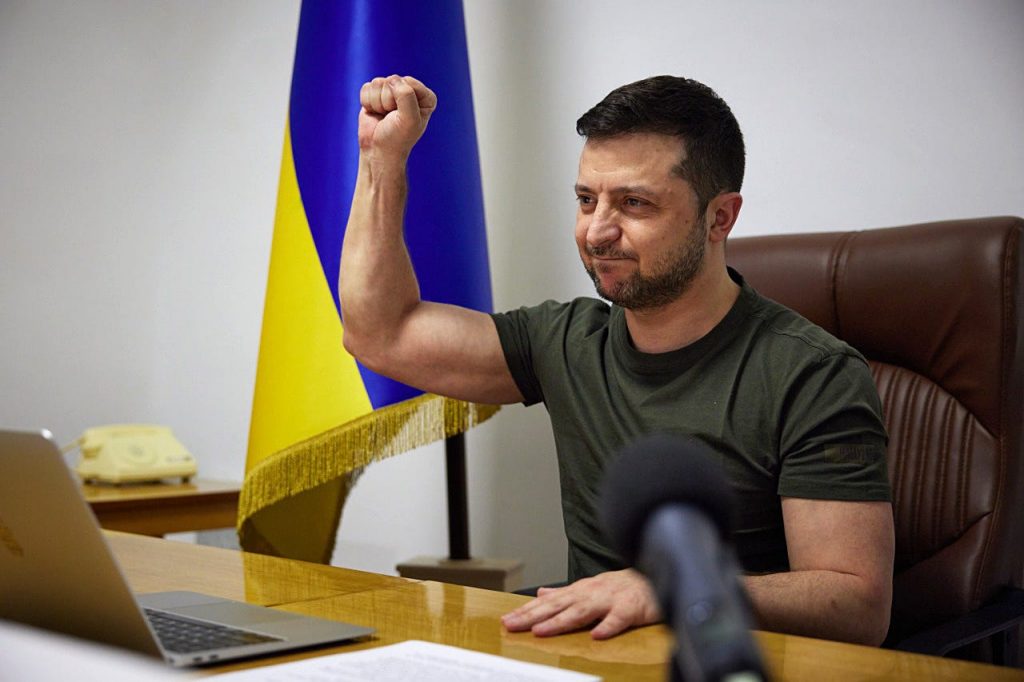
He's leaning into emotion
Zelenskyy doesn't tiptoe around the fear and grief that he and his people are experiencing. He uses his platform to validate his constituents' feelings and appeal to people's pathos when asking for aid.
"Before I begin, I would like you to understand my feelings, and the feelings of all Ukrainians, as far as it is possible," the Ukrainian president told the Canadian Parliament in a recent speech. "Our feelings over the last 20 days, 20 days of a full-scale aggression of the Russian Federation after eight years of fighting in Donbass region. Can you only imagine?"
Zelenskyy's communication style positions him as relatable and personable and helps humanize the war. Storytelling and using emotion make speakers more effective, research has shown.
"The more a speaker conveys information in story form, the closer the listener's experience and understanding will be to what the speaker actually intended," Lani Peterson, a psychologist, said.
"Zelenskyy hasn't shied away from showing emotion, which has been very impactful," Griffin, the Georgetown fellow, said. "Juxtapose this to Putin, who only shows orchestrated displays of strength and a complete lack of empathy."
Beyond speaking with empathy, he's leading with empathy, too, experts said. He's visited wounded Ukrainian civilians and soldiers in their hospital beds. It's reminiscent of other powerful moments in history, like Princess Diana visiting HIV/AIDS patients during the pandemic in the 1980s despite the social stigma against patients, or Mother Teresa visiting leprosy patients outcast by society in the 1960s.
"You can give great speeches all day long. You can tweet all day long. You can wear casual clothes. You can do all these things, but this is really about action," Evans, a crisis-communications expert, said. "His words match his actions."

